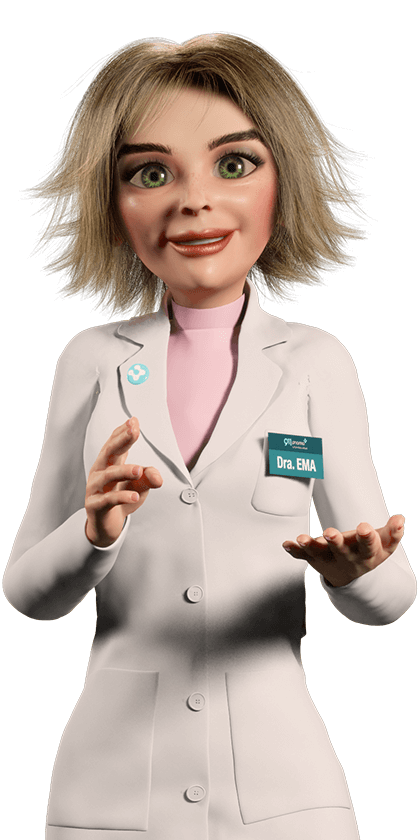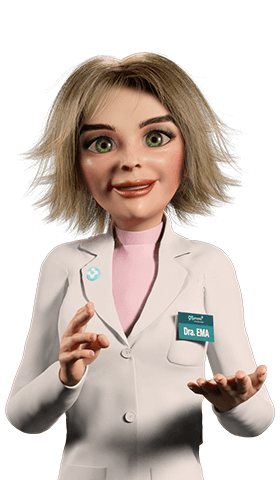Food
Get ready, here come the teeth
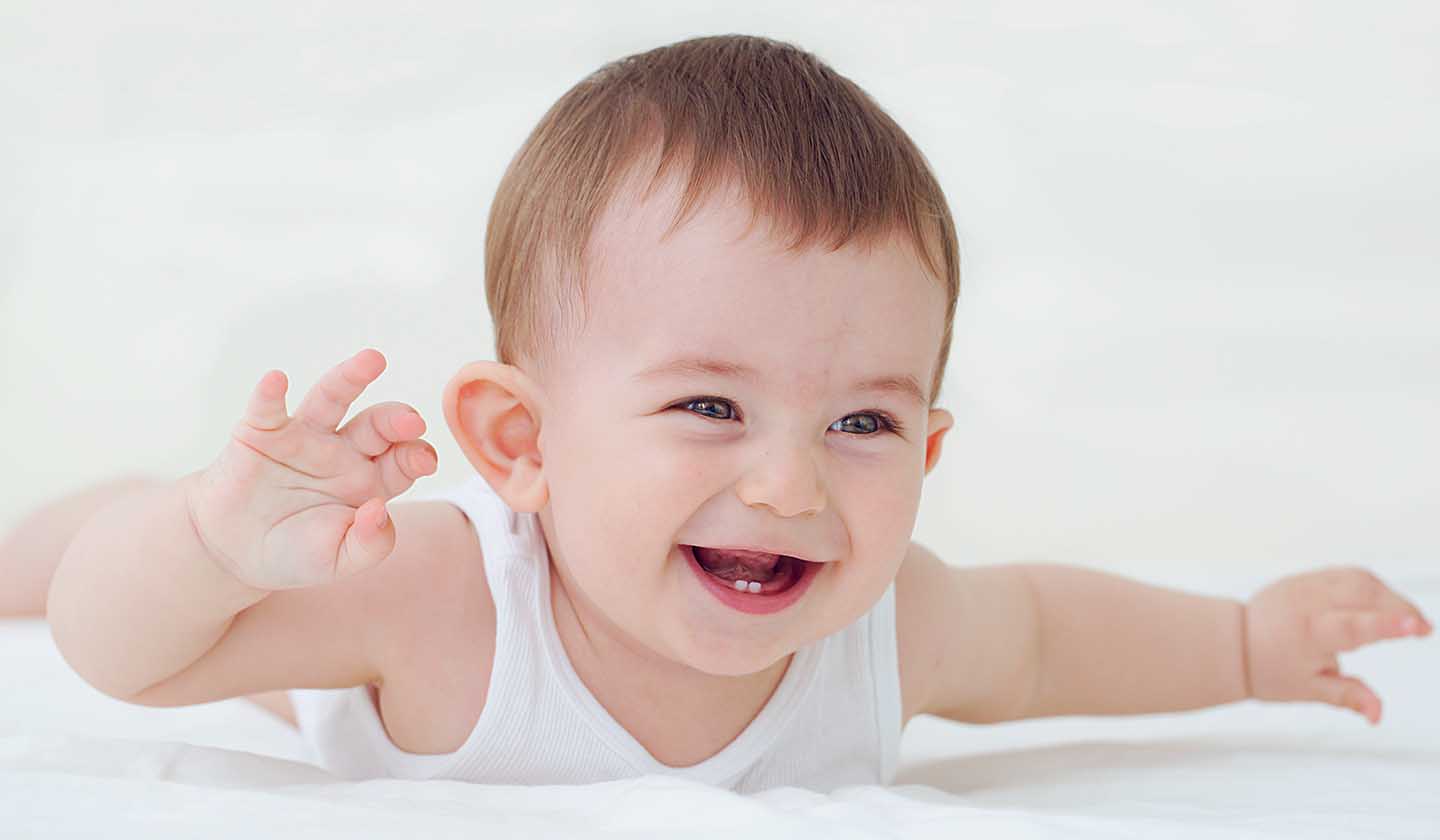
The first teeth to appear can be a difficult phase for babies, as well as for parents. It is especially important to have a good oral hygiene and to take measures that relieve gum discomfort.
Primary dentition
The primary dentition, also known as “milk teeth”, is comprised of 20 teeth and usually begins between six and eight months of age. This is a slow process and it usually ends between two and three years of age.
The growing of the first teeth does not occur equally among babies, it may start earlier or later, without any associated health problem.
However, if the child does not have any teeth after 12 months of age, you should see a dentist.
Identify the first signs of teething
This process can either go unnoticed or be very painful for the baby. Some common symptoms during primary teeth eruption may be:
-
The baby drools more than usual (it can cause chapped lips and dry skin);
-
The baby puts objects in his/her mouth more often (will bite hard objects);
-
The gums become swollen and red;
-
There is loss of appetite (the action of breastfeeding or taking a bottle can cause discomfort in the baby’s gums, which are already sore);
-
Irritability (the baby is very fussy and cries for no apparent reason);
-
Difficulty sleeping.
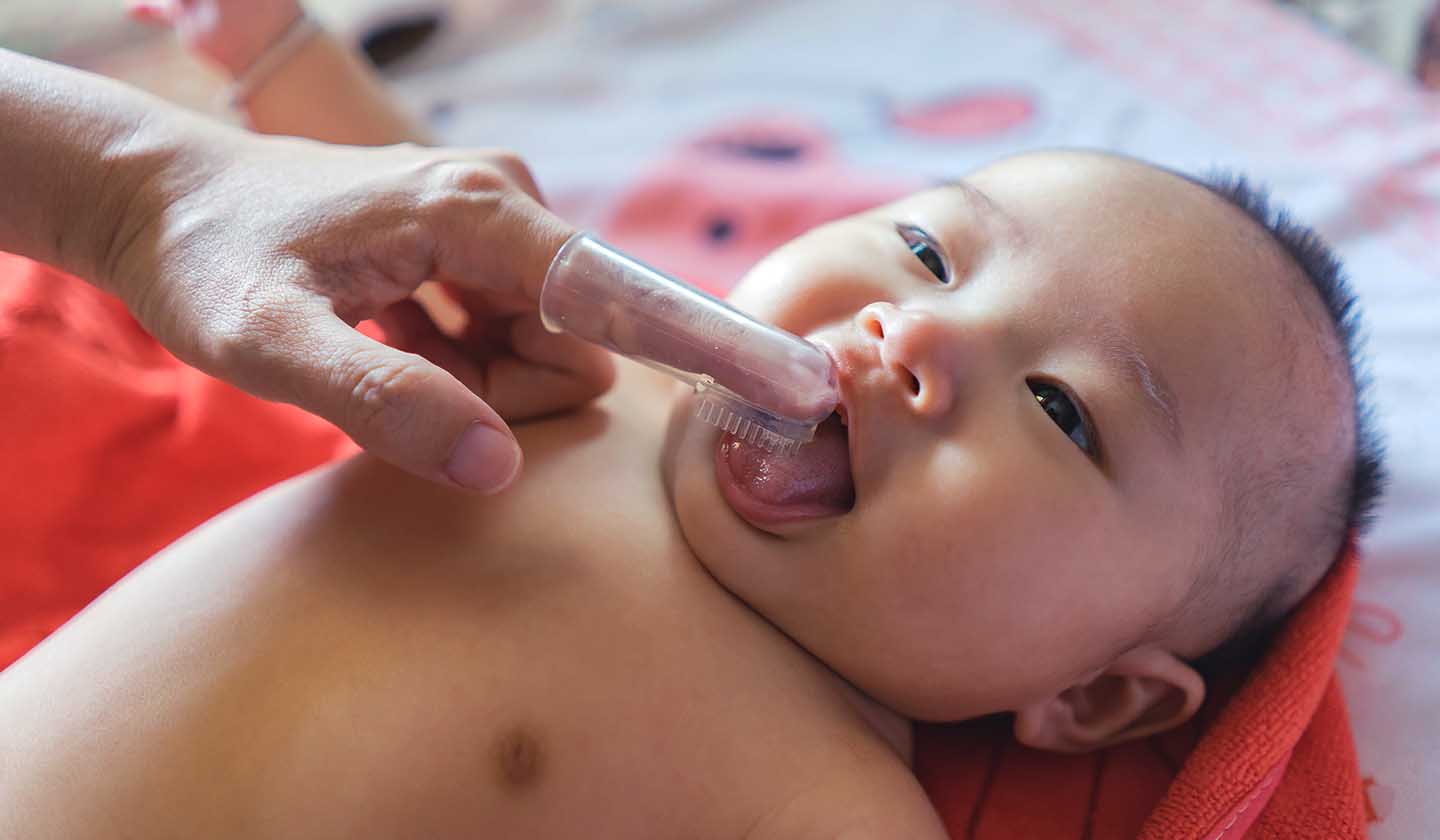
How can I help my baby?
The eruption of the first teeth can cause inflammation and increased sensitivity of the gums around the teeth, causing pain. To help your baby you should try to relieve his/her discomfort.
These are some steps to help relieve your baby’s symptoms:
-
Gently massage the baby's gums with a silicone finger toothbrush or with a clean finger;
-
Apply a sterile compress soaked in cold water to the baby's gums;
-
Use teethers for babies (you can put them in the refrigerator because the sensation of cold will relieve pain and refresh sensitive gums);
-
Apply a baby gums gel without alcohol, appropriate to the first teeth (soothes and refreshes the gums);
-
Offer liquids and cold foods to your baby;
-
If your baby has severe pain or a mild fever, it may be necessary to use a painkiller as a syrup or in the form of suppository, if your baby has severe pain or a mild fever (for example, paracetamol). Do not forget that the dose to be given depends on the baby's weight.
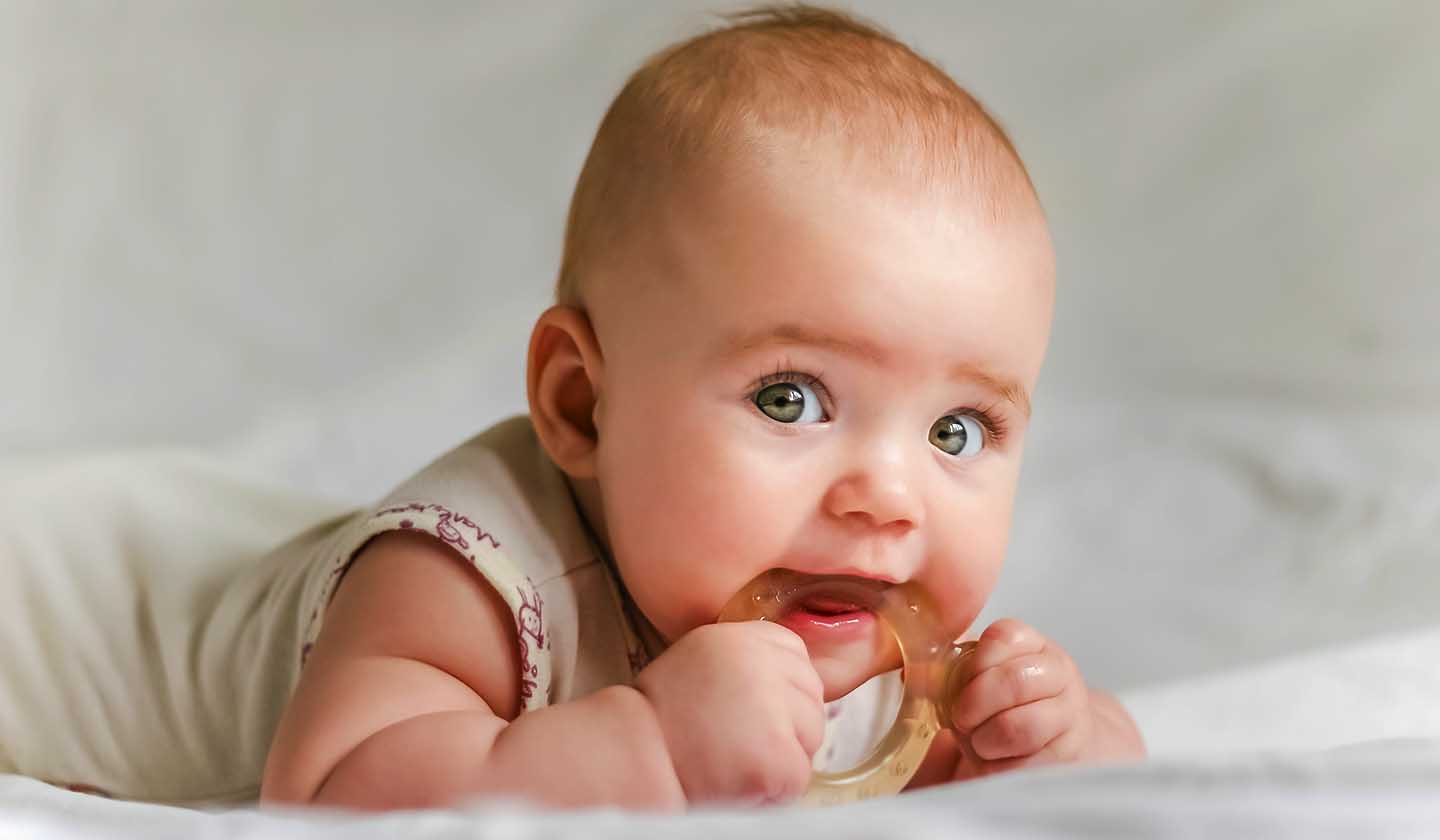
Oral hygiene
When the first tooth erupts, the baby's oral hygiene must be incorporated into the daily routine. Up to 3 years of age, tooth brushing should happen twice a day: once in the morning after breakfast and right before bedtime (the latter being mandatory).
Use a toothpaste containing 1500 ppm fluoride and put a small amount (the size of a grain of rice) on a gauze, finger toothbrush or soft toothbrush.
The first paediatric dentistry consultation (dentistry specialty dedicated to children’s oral health) should be performed when the first teeth erupts or, at the most, until the child is one year old.
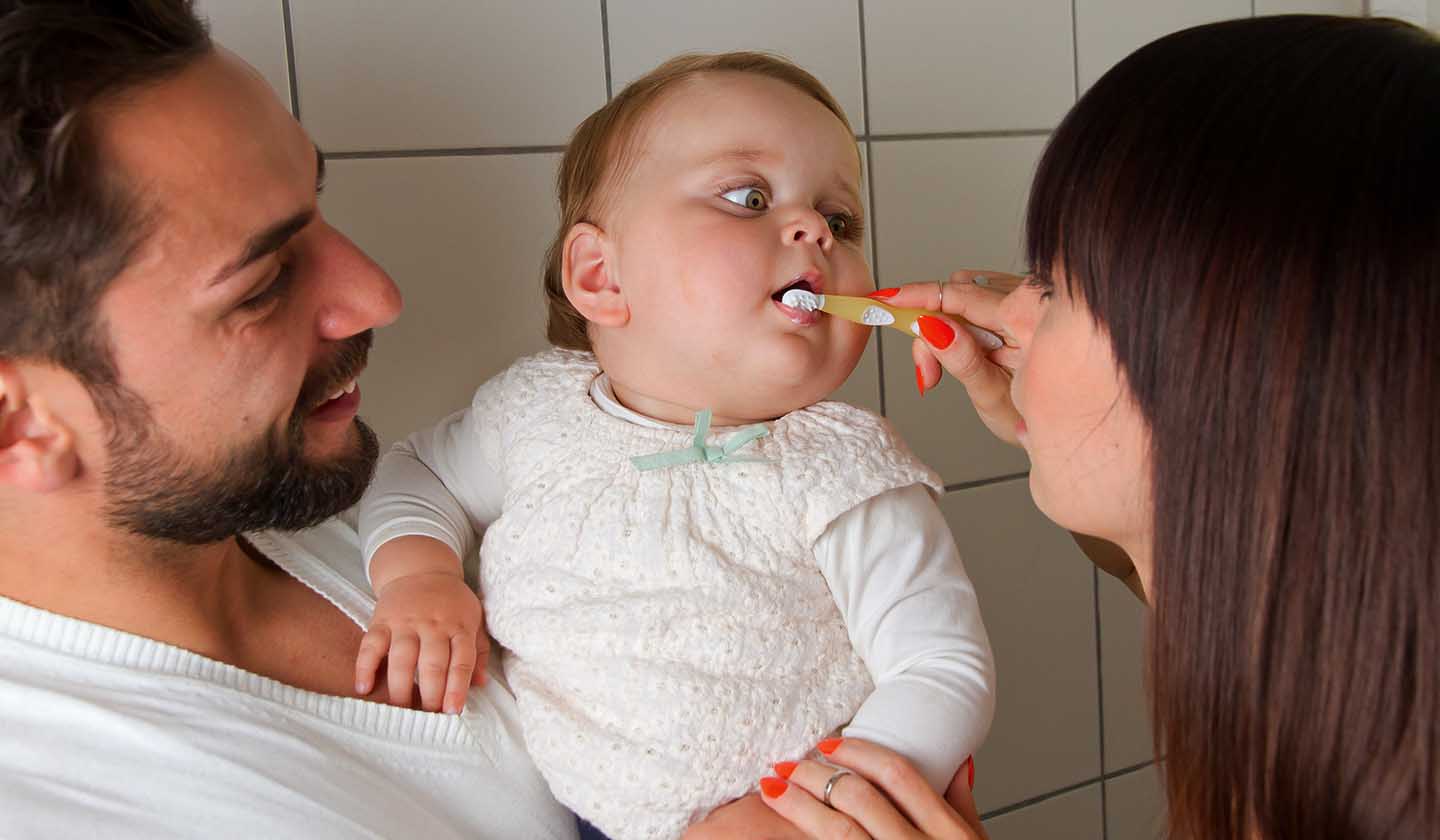
Keep in mind that:
In case of a high fever (over 38 ˚C) or if the fever persists for more than two days, please talk to your paediatrician.
Sources
iSaúde
Farmácia Distribuição Magazine
Também lhe poderá interessar
Food
